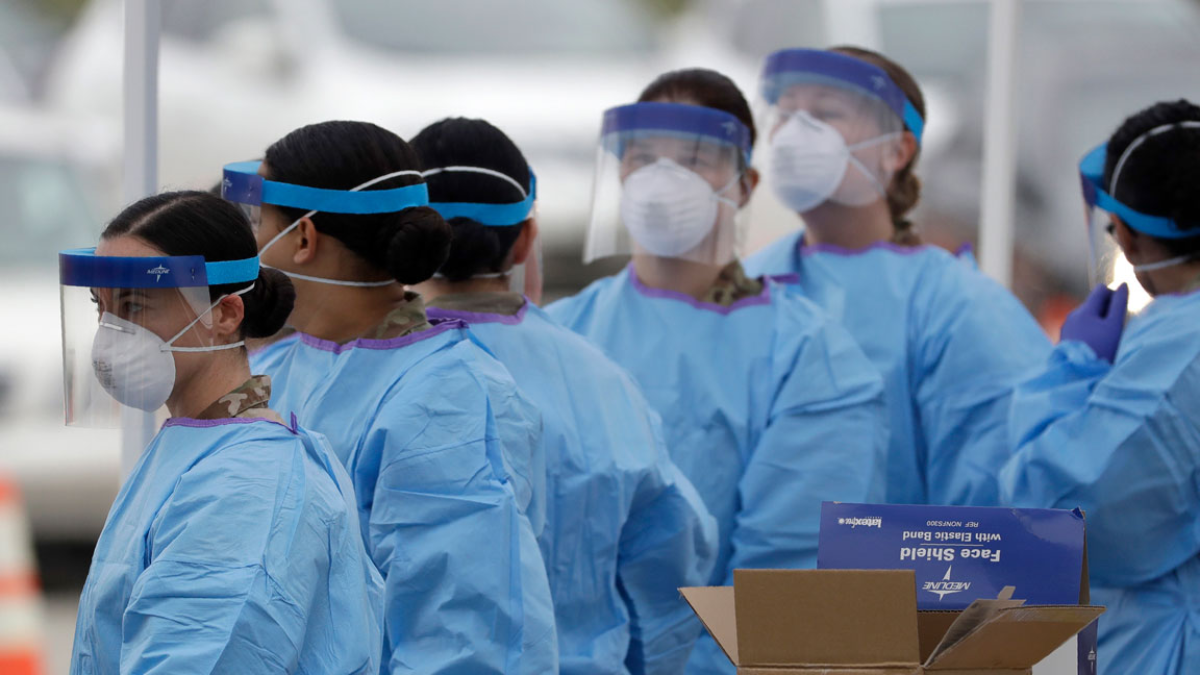New Jersey officials and residents are expressing deep concerns over the potential impact of former President Donald Trump’s proposed health care cuts. The proposed reductions in federal health care funding could significantly affect Medicaid, Affordable Care Act (ACA) subsidies, and essential health programs that millions rely on.
With New Jersey’s high population of insured residents through government-assisted programs, these cuts could lead to a severe health crisis across the state.
Medicaid Funding at Risk
One of the most significant concerns is the impact on Medicaid. New Jersey has over 2 million residents enrolled in Medicaid, and any reduction in federal funding could lead to service cuts, higher out-of-pocket costs, and restricted access to care.
Health care advocates warn that hospitals and clinics serving low-income populations may face financial strain, potentially leading to closures or service reductions.
Governor Phil Murphy and state legislators have voiced strong opposition to these proposed cuts, emphasizing that New Jersey cannot afford to lose critical federal funding. Murphy has pledged to explore state-level solutions to mitigate the damage, but the financial burden on the state could be overwhelming.
Threats to the Affordable Care Act (ACA)
Trump has repeatedly criticized the Affordable Care Act and has proposed policies that would reduce funding for ACA subsidies, making health insurance more expensive for many New Jersey residents.
According to health care experts, this could result in thousands of people losing coverage, particularly those who depend on subsidies to afford their premiums.
New Jersey has one of the highest ACA enrollment rates, and any rollback in financial assistance would disproportionately impact middle-class families who rely on the marketplace for health insurance.
Experts fear that without adequate subsidies, many could be forced to drop coverage entirely, leading to higher uninsured rates and increased pressure on emergency rooms and community health centers.
Impact on Seniors and Vulnerable Populations
Trump’s proposed health care cuts could also have a devastating effect on seniors and other vulnerable groups. Medicaid provides essential support for long-term care, including nursing homes and in-home care services.
New Jersey’s aging population relies heavily on these services, and funding reductions could lead to higher costs for families and limited access to quality care.
Additionally, cuts to federal health programs could impact people with disabilities and those with chronic illnesses who depend on Medicaid and other health services. Advocacy groups are warning that such changes could force many individuals to forgo necessary medical treatments.
Economic Consequences for New Jersey
Beyond health care access, Trump’s proposed cuts could have severe economic repercussions for New Jersey. The health care industry is a significant employer in the state, providing jobs for thousands of medical professionals, support staff, and administrators.
Reduced federal funding could lead to job losses, hospital closures, and decreased investments in medical infrastructure.
Hospitals and clinics that rely on Medicaid and ACA reimbursements could be forced to cut back on services or even shut down, particularly in low-income and rural areas.
This would not only limit access to medical care but also create a ripple effect on local economies, as job losses and decreased spending would further strain struggling communities.
Political Response and Public Reaction
Democratic leaders in New Jersey have vowed to fight back against Trump’s proposed health care cuts, arguing that they would disproportionately harm working-class families, seniors, and vulnerable populations.
Governor Murphy has stated that he will work with other state governors and lawmakers to push back against federal funding reductions.
Public outcry has also been significant, with protests and advocacy campaigns emerging across the state. Many New Jersey residents are concerned about losing health coverage and are urging lawmakers to take action to protect essential health programs.
Future of Health Care in New Jersey
The future of health care in New Jersey remains uncertain as debates over federal funding continue. If Trump’s proposed cuts are implemented, the state will need to explore alternative funding sources and policy measures to safeguard access to medical services.
Some potential solutions include expanding state-funded health programs, increasing taxes to offset federal cuts, or implementing new regulations to protect low-income residents.
Despite these challenges, New Jersey’s leadership remains committed to ensuring that residents have access to quality health care. The outcome of this battle will have lasting effects on the state’s health care landscape, determining whether millions of people can continue receiving affordable medical care.
For more information on health care policy updates and state responses, visit the New Jersey Department of Health.
Disclaimer – Our team has carefully fact-checked this article to make sure it’s accurate and free from any misinformation. We’re dedicated to keeping our content honest and reliable for our readers.
